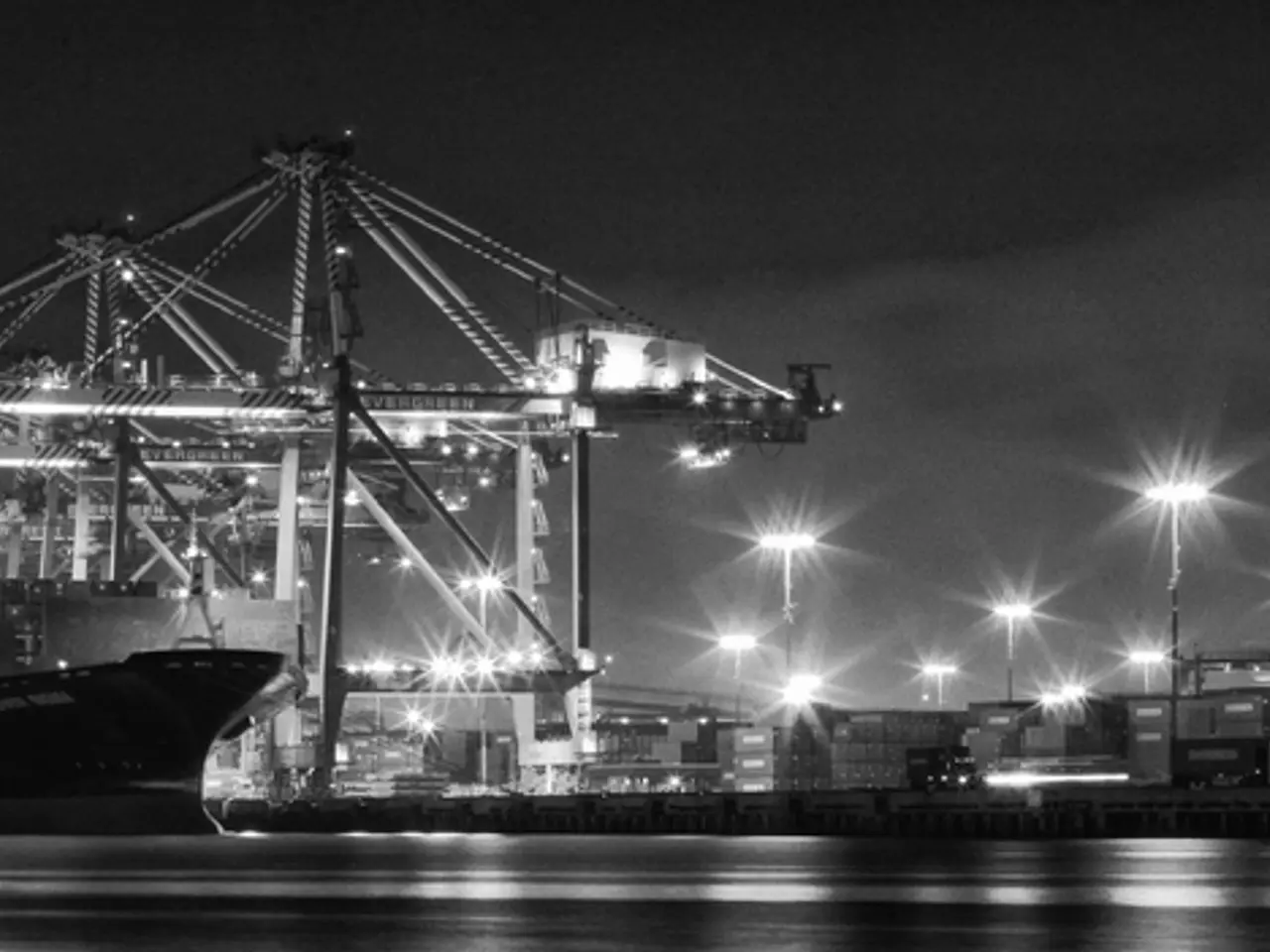Exploring Shipbuilding Agreements: Pivotal Legal Factors to Bear in Mind
In the dynamic world of shipbuilding, contracts play a pivotal role in ensuring financial transparency, legal compliance, and project success. These legal agreements, known as shipbuilding contracts, are essential for shipbuilders, shipowners, and legal professionals alike.
At the heart of these contracts lie key components such as the specification of vessels, timeline and milestones, and payment terms. The specification of vessels details the design, capacity, and construction materials of the ship, ensuring that the final product meets the buyer's requirements. Timeline and milestones outline project duration and critical phases, helping track progress and manage delays. Payment terms dictate financial obligations, including deposits, interim payments, and final payments, providing budget certainty for all parties involved.
Shipbuilding contracts are categorized into three types: fixed-price contracts, cost-plus contracts, and time and materials contracts. Fixed-price contracts offer budget certainty, while cost-plus contracts reimburse actual costs and offer flexibility. Time and materials contracts base payments on time and materials used. Each type has its advantages and disadvantages, and selecting the appropriate contract type is crucial for a successful project.
Liability in shipbuilding contracts refers to the legal responsibilities that parties assume regarding the construction, performance, and delivery of the vessel. Future trends in shipbuilding contracts include digitalization, increased emphasis on sustainability, globalization, and the growth of automated and smart ships. These advancements require clear terms regarding intellectual property and liability for technological failures.
The legal implications of shipbuilding contracts involve intricate issues related to liability, dispute resolution, and breach of contract scenarios. Dispute resolution mechanisms within shipbuilding contracts often include arbitration and mediation, which offer efficient alternatives to lengthy court trials. Parties involved in shipbuilding contracts must carefully select the appropriate body of law to govern their agreement, which may be influenced by the location of the shipyard, the nationality of the contracting parties, or the flag of the vessel being constructed.
Key risks associated with shipbuilding contracts include cost overruns, delays in delivery, quality control issues, and legal compliance. Understanding these risks and implementing best practices for negotiating shipbuilding contracts can help mitigate potential issues. Best practices include a comprehensive assessment of the project's specifications, establishing a reasonable timeline and milestones, defining payment terms, and incorporating a dispute resolution mechanism.
In recent years, countries like China, Japan, and South Korea have secured the most shipbuilding contracts with the highest total value, dominating about 94% of the global shipbuilding market, particularly in the Asia-Pacific region. As the maritime industry continues to evolve, the importance of understanding shipbuilding contracts will only grow.
Read also:
- Unfair Expenditure Distribution, Secret Tourists, Looming Rabies Threats: Latest News Roundup
- Hydrogen: Eco-friendly Alternative or Energy Imperialism Debate?
- Hydrogen: Environmentally Friendly Alternative or Energy Imperialism?
- Strategies for expanding your creative enterprise, directly from industry experts




